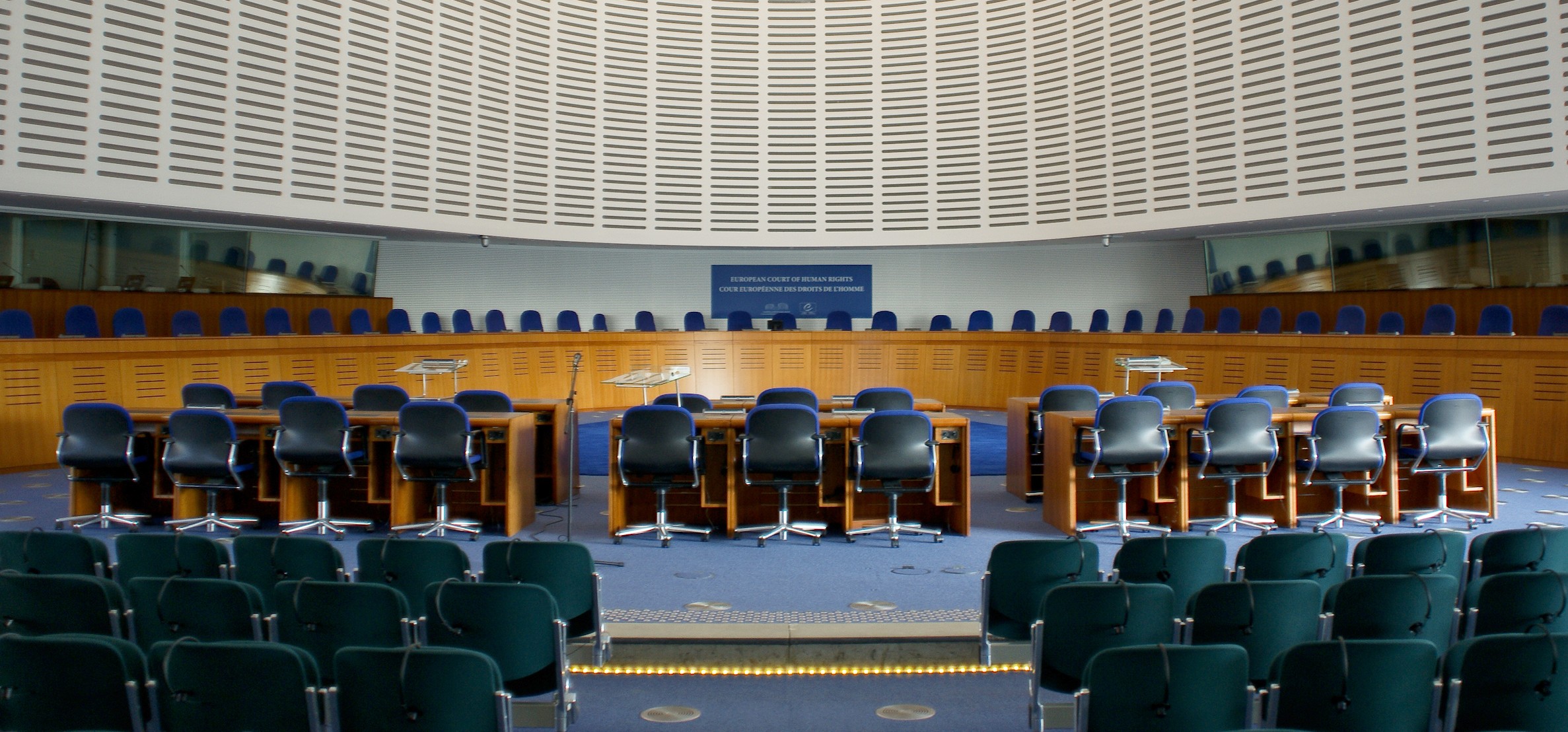
by Mary W Maxwell, LLB
This article begins a new 6-part series, “Child Protection, Let’s Roll.” The name is meant to indicate that we have to hurry up and stop child stealing by the state. It would be wasteful to spend more time showing that judicial kidnap exists. The previous Gumshoe series, entitled “Proof Enough of Judicial Kidnap” already did that.
Its five parts were entitled:
Part 1. The Three-fingered Judge
Part 2. Australia’s Stolen Generation
Part 3. A Survey and Bleeding Rectum Syndrome
Part 4. Books by Keith Snow and Carlos Morales, and
Part 5. George Potkonyak and Don Rufty Have a Go.
This article deals with one case that was decided at the European Court of Human Rights in Strasbourg, France. A contract among 47 nations in The Council of Europe authorizes this court. Any citizen can bring a case after he or she has exhausted domestic remedies.
In a Forbes article entitled “Norway’s Government-Abducted Children,” dated February 27, 2017, Laurence Wilkinson wrote:
“Claims that Barnevernet [the Norwegian CPS] is excessively interventionist in the way it handles child protection cases have mired the agency for years, especially in relation to foreign parents. In 1996, the [European] Court found Norway to have violated the right to respect for family life.
“In 2011, a diplomatic storm broke out when the authorities took two young children away from their Indian parents, who were living in Norway on a work visa.
“More recently, the case of a young Christian couple who had all five of their young children taken away in late 2015 sparked global protests. Marius and Ruth Bodnariu lived in a rural Norwegian town. Marius is an IT expert from Romania…. Without any warning, the Barnevernet appeared at the family home one day to announce that their two eldest daughters had been taken straight from school into emergency custody and proceeded to take the two eldest sons. Barnevernet returned again the next day, to take away the 3-month-old baby.
“The Romanian government sent a delegation to investigate the case, which uncovered evidence that the local authorities were concerned about the children being ‘indoctrinated’ by their parents’ religious beliefs. Intense international pressure ultimately forced Barnevernet to close the case and release the children back to the parents. [Emphasis added]
Johansen V Norway (1997)
Mrs Johansen won her case in 1997. The judges were 8 to 1 in favor. Her daughter had been taken from her at birth. She made the case that this violated her rights under Article 8 of the European Convention on Human Rights, on the right to respect for private and family life.
I will describe the family only as is shown in the court documents. Ms Johanses had a baby boy – we must call him C – in 1977 when she was 17. She sought help from welfare and lived with a man who mistreated her and C, eventually spending 2 years in jail for his drug issues.
“Friction arose between mum and the child welfare authorities. The son, C, began to receive psychiatric treatment and in January 1989 was sent to a special school. In November he was taken into care by Barnevernet on the basis of danger to his health and development.”
The court notes:
“The police assisted the child welfare authorities in enforcing the decision. After spending the period from November 1989 to early January 1990 at the Child Psychiatric Department of Haukeland Hospital, C. was placed in a children’s home….
“When faced with difficulties, the applicant had broken off her contact with the system which had been set up to assist her. Her way of life had had a detrimental effect on C. and the fact that he had changed schools had created much insecurity.”
I can’t make any judgment on the rightness or wrongness of that. Anyway, the case is not about the son, it is about Ms Johansen’s daughter, codenamed “S” who was born in December 1989. On December 13, the Chairperson took S provisionally into care under section 11 of he Child Welfare Act. The grounds for this was the physical and mental state of the mother form which was assumed her inability to care for the baby.
“In reaching the above decision, the Chairperson had regard to the decision by the social welfare authorities in Bergen to take the applicant’s son provisionally into care and their intention of doing so on a permanent basis, as well as their concern for the situation of the baby.”
It reads as follows:
“1.Everyone has the right to respect for his private and family life, his home and his correspondence. 2.There shall be no interference by a public authority with the exercise of this right except such as is in accordance with the law and is necessary in a democratic society in the interests of national security, public safety or the economic well-being of the country, for the prevention of disorder or crime, for the protection of health or morals, or for the protection of the rights and freedoms of others.”
The baby was placed in a short-term foster home at which mum was allowed to visit her twice a week.
“She did not challenge this access arrangement, which was not based on any formal decision.” [Good heavens how would she know how to go about challenging it!]
One of the expert opinions stated
“I regret that, as the expert in this case, I am not hopeful about her future ability to take care of her children, although she undoubtedly loves them and is attached to them.”
Turning to the rights of the child it was stated:
“It is of decisive importance for S’s personal development that she now gets the opportunity to attach herself to persons whoms he may regard during her adolescence as stable and secure parents.”
At that point, Mum asked for a second opinon but the state would not allow it so she got herself from a, Mrs Lise Valla. That psychologist’s opinion, filed when S was 4 months old, said
“I cannot find that there are sufficient reasons for depriving [the applicant] of the care of her [two] children. In my view she shows responsibility when it comes to considering the children’s adolescence -and she is also a person who may learn from the mistakes she has made.”
Adoption
I will jump over more of the discussion to point out that what is being discussed here is official termination of the parent’s right. The justification went like this:
Adoption had the advantage of clarifying the situation and of creating security and stability for the child and the adoptive parents. Moreover… in order to secure the child’s development and its relationship with the persons who would permanently assume the care, it would be appropriate for the authorities to deprive the applicant of all her parental responsibilities. …
“While the girl has been at the Child Care Centre , Mrs Johansen has had access to her twice a week for one hour. Following transfer of the girl to an approved foster home with a view to adoption it is recommended that access be refused and the address kept secret.”
So it took years to get to the Hunan Rights Court. In 1991 the City Council had a 40day hearing presided over by one judge. The City Court, sitting with one specially appointed judge. The Ministry was the defendant. There were two appointed experts. They upheld the decision to take the girl, using this reasoning:
“According to the Child Welfare Act, the starting-point is that a child should grow up with his or her natural parents. The interests of the child may, however, warrant exceptions being made to this general rule as it cannot be interpreted so as to allow the child to be subjected to considerable harm.”
I interject here that I am not an advocate of “parental win at all costs in every case.” I think there is much to be said for protecting child from harm. Even as we speak there are plenty of children in Australia and the world who be in terror every day of the week. Still it is not listed in the court case at Strasbourg that the girl, then a year old, was being harmed.
The City Council said: “The possible negative effects on the child of being returned from the foster parents to the natural parents must be taken into consideration.”
I agree with that, too. Professor Freda Briggs in her 2014 submission to the Royal Commission told harrowing tales of children who were very happy with their foster family being spirited away (not to the natural parent but to other foster placements, including against the will of the loving foster carer!)
The next bit is rather unsettling:
“Regard must also be had to the fact that the Child Welfare Committee [barnevernsnemnda] and the County Governor may lawfully maintain a decision to take the child into care even if the circumstances on which the decision was based have later changed to such an extent that the conditions for intervention pursuant to the Child Welfare Act are no longer fulfilled.”
So, by now, you are wondering if parents, generally speaking, have a high-priority right to raise their child. I have not been able to ascertain that Australia guarantees such rights. Australia does not have a Bill of Rights. The Europeans do have such a right. The Article 8 of their convention – inspired no doubt by the Fourth Amendment to the US Constitution, says (to repeat):
“1. Everyone has the right to respect for his private and family life, his home and his correspondence. 2. There shall be no interference by a public authority with the exercise of this right except such as… is necessary in a democratic society [with some exceptions including ] for the protection of the rights and freedoms of others.”
What is the scope of any resulting jurisprudence? At the official website, Ehcr.coe.int, we find:
“The mission of the system set up by the Convention is thus to determine issues of public policy in the general interest, thereby raising the standards of protection of human rights.”
The Strasbourg judges found as follows:
Therefore the Court reaches the conclusion that the national authorities overstepped their margin of appreciation, thereby violating the applicant’s rights under Article 8 of the Convention. In this connection it should be noted that less than a year after 3 May 1990 the City Court found that the applicant’s material conditions had improved to the point where she would have been able to provide her daughter with a satisfactory upbringing.
An important consideration for the City Court in refusing to terminate care was the lack of contact between the applicant and her daughter pending the proceedings, which state of affairs resulted directly from the decision of 3 May 1990 to deprive the applicant of her access….
FOR THESE REASONS, THE COURT 1. Holds unanimously that the taking into care of the applicant’s daughter and the maintenance in force of the relevant care decision did not give rise to a breach of Article 8 of the Convention [sec 2] Holds by eight votes to one that the decision of 3 May 1990, in so far as it deprived the applicant of her access and parental rights in respect of her daughter, constituted a violation of Article 8 [sec 3].
…Holds unanimously that it is not necessary to make an award for costs and expenses.
Done in English and in French, and delivered at a public hearing in the Human Rights Building, Strasbourg, on 7 August 1996. Signed: Rudolf BERNHARDT President, Signed: Herbert PETZOLD, Registrar
Postscript. There cannot have been any chance for the child S to state her preferences as she was pre-verbal. But it is interesting to note the following passage in the judgment, referring to the way in which the son, C, apparently got to go home or stay home:
On 24 April 1990 it was decided to take C. permanently into care but on 19 June that care decision was lifted, notwithstanding the fact that his care situation was still considered to be detrimental to his physical and psychological development, a matter which continued to be of great concern to the authorities. The conflict between the authorities, on the one hand, and the applicant and her son, on the other, had made it impossible to implement the care decision without it being even more detrimental to the boy. [Yay!]






























“I am not an advocate of parental win at all costs in every case.”
How about “Due to the fact that guns get used for criminal purposes some government control is necessary”
Both arguments fail to counter in the fact that, by their very nature, the respective systems foster criminality.
Interesting how a drop of truth is always used to hide a lake of poison
Not sure what you mean, Berry, but my statement of approval for the occasional genuine case appears here on Gumshoe against a background of my knocking just about every case I ever done seen.
But come to think of it, I know a few people who grew up at home with parents who should have been allowed to live. Consider the book Enslaved Queen by Wendy Hoffman. Whew-eee.
Typo: “who should NOT have been allowed to live.”
and a typo in the text: I said City Council when I meant to say City Court. Zorrree.
Many years ago, judging by Rolf’s age. Why are there cops here?
.
https://www.youtube.com/watch?v=u5ailIF3w0Q
Dee, would you please reduce the length of the title by saying CPS instead of Child Protection? This is because some of the next parts in the series are a bit long. Viz.,
CPS Let’s Roll, Part 2: An Apology is Due for Franca Arena.
And CPS Let’s Roll, Part 3: Britons Never, Never, Never Shall Be Slaves.